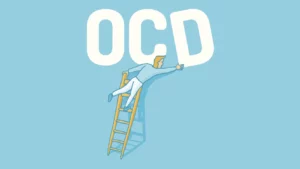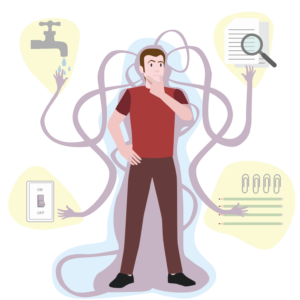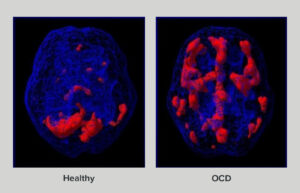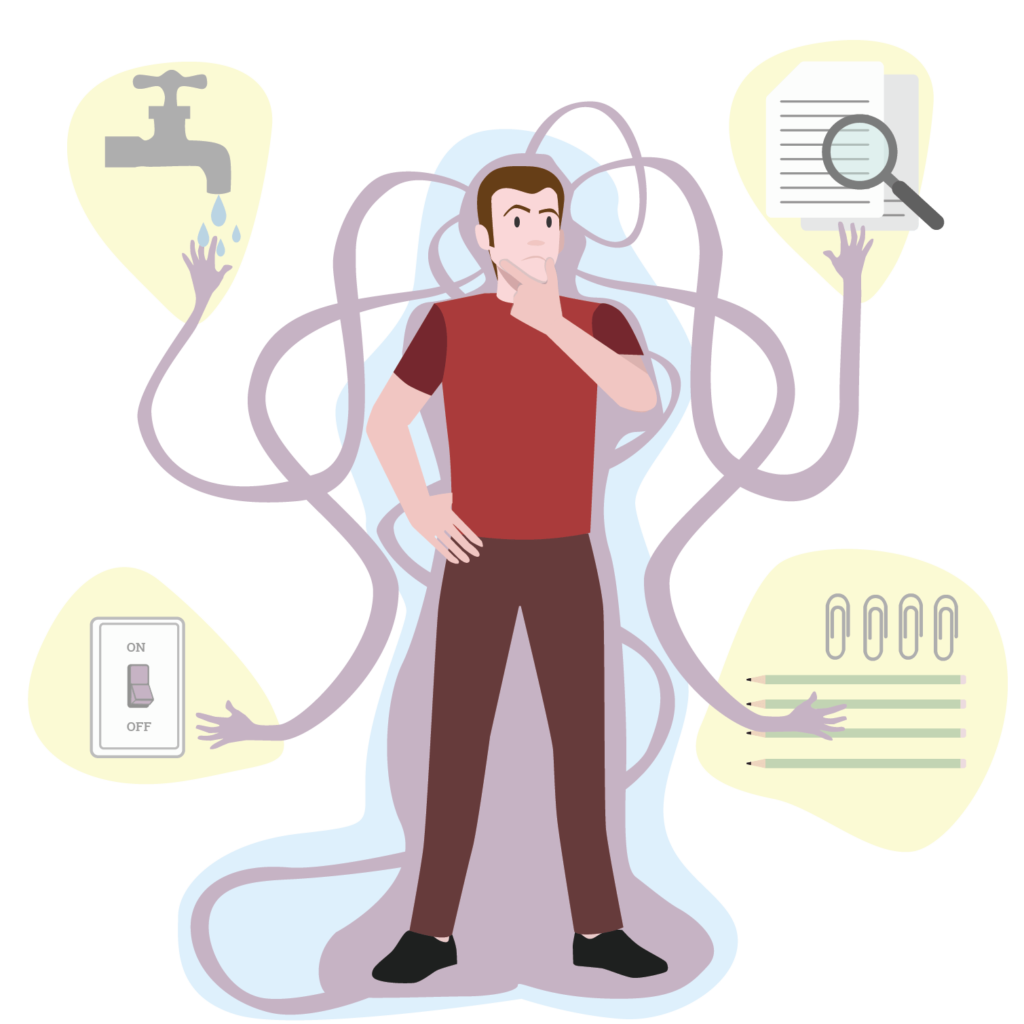OCD, or Obsessive Compulsive Disorder, is a mental disorder that affects people of all ages and backgrounds. It is characterized by intrusive thoughts and compulsive behaviors that the person feels they cannot control. OCD can be very disabling and can cause a great deal of distress for the sufferer. In this blog post, we will discuss what OCD is, its symptoms, how to fight it, and the treatment options available.

Contents
OCD- An Anxiety Disorder
OCD is classified as an anxiety disorder, and it is thought to be caused by a combination of genetic and environmental factors. It suffers typically experiences anxiety or fear in response to certain triggers (such as dirt, germs, or other perceived threats). This anxiety leads to compulsive behaviors that the person feels they must do to relieve their anxiety. These behaviors can include excessive hand-washing, cleaning, or checking; hoarding; and repetitive thoughts or rituals.
OCD can be a very disabling disorder, making it difficult for sufferers to function in their daily lives. OCD can cause problems at work, school, or in relationships. It can also lead to financial problems, as the person may spend a lot of money on things like cleaning supplies or hoarding items.
Symptoms of OCD

The following are some of the symptoms of obsessive-compulsive disorder (OCD):
- Intrusive, unwanted thoughts or images (obsessions) that cause anxiety or distress
- Compulsive behaviors or rituals (such as hand-washing, cleaning, checking, or hoarding) that the person feels they must do to relieve their anxiety
- Avoidance of situations or objects that trigger their obsessions
- Extreme anxiety or distress when unable to perform their compulsions
- Interference in daily life, such as problems at work, school, or in relationships
If you or someone you know is exhibiting these symptoms, it is important to seek professional help. OCD can be a very treatable disorder, but the first step is to get an accurate diagnosis here are many ways to fight OCD, and it is important to seek professional help if you think you may be suffering from the disorder. Cognitive-behavioral therapy (CBT) is one of the most effective treatments for OCD.
How to fight OCD?

Here are some strategies to help you overcome OCD:
Avoid Nicotine and Alcohol
In the pretext of self-medication, many people seek help with cigarettes and alcoholic drinks. Though both of them help you to relax your anxiety initially, in the long run, it has a negligible effect on your anxiety and they can have negative consequences on your physical health. Thus, both of these substances can increase anxiety and make OCD symptoms worse.
The smoking rate among adults with OCD and PYOCD was lower than that seen in comparable samples of the general population and Axis I disorder. There was a nonsignificant trend for alcohol use disorders to be associated with higher levels of OCD and PYOCD symptoms
Exercises
Regular exercises not only help you to physically relax but also helps in the production of endorphins (a feel-good chemical) in the brain. A recent study has shown that just 30 minutes of moderate aerobic exercise three times a week can help reduce OCD symptoms. A growing body of studies indicates that aerobic exercise, as well as some types of yoga, can help calm the intrusive thoughts, ideas, and compulsions that the brain repeatedly pours forth.
Reach Out to Family and Friends
It is always better to talk about your problems with someone you trust. When you keep everything bottled up inside, it can make things worse. Talking to a family member or friend can help you to feel supported and may also give you some helpful insights.
First of all, you need to decide and choose the person with whom you want to discuss your disorder. Make a list of symptoms that you experience so that you can give a clear idea to the person. Secondly, it is also very important to select a place where you feel comfortable talking about such things. You can also take the help of online support groups if you do not want to discuss face-to-face.
Practice Meditation

Meditation is a very effective way to calm your mind and body. It helps you to focus on the present moment and be more aware of your thoughts and feelings. There are many different types of meditation, so you can try out different ones to see which one works best for you.
Start with just a few minutes of meditation each day and gradually increase the time as you get more comfortable with it. Some many apps and websites can help you to learn how to meditate.
Create a Daily Schedule
One of the best ways to fight OCD is to create a daily schedule and stick to it. This will help you to structure your day and will also give you a sense of control. When creating your schedule, make sure to include time for activities that you enjoy and that make you feel good. This can be anything from reading, going for a walk, or listening to music.
It is also important to include time for your compulsions in your schedule so that you can gradually reduce the amount of time spent on them. When creating your schedule, make sure to be realistic and start with small goals.
Talk to Your Doctor
If you are struggling to cope with your OCD symptoms, it is important to talk to your doctor. They will be able to offer you some helpful advice and may also be able to refer you for further treatment. If you are taking medication for another condition, it is important to let your doctor know as this could be affecting your OCD symptoms.
Your doctor may also be able to offer you some lifestyle advice, such as how to create a daily schedule or how to talk to your family and friends about your condition.
Good Sleep Habits
It is important to get enough sleep when you are struggling with OCD. This can be difficult as the intrusive thoughts and compulsions can make it hard to relax and get to sleep. There are a few things that you can do to help improve your sleep, such as:
•Creating a bedtime routine and sticking to it
•Avoiding caffeine and alcohol before bed
•Keeping a notepad by your bed so that you can write down any intrusive thoughts that come into your head
•Doing some relaxation exercises before bedtime
Find a CBT Therapist
Cognitive behavioral therapy (CBT) is a type of therapy that can help to treat OCD. CBT focuses on changing the way you think about and respond to your obsessions and compulsions. It can be an effective treatment for OCD and can be delivered in individual or group sessions. CBT therapists can help you a lot in your journey as they have experience and proper degrees of methods to alleviate and reduce the symptoms of OCD.
Conclusion
OCD can be a very distressing condition, but there are many ways that can help you to fight it. It is important to find a strategy that works for you and to stick with it. Remember, OCD is a battle that you can win.
If you are struggling to cope with your OCD symptoms, it is important to talk to your doctor. They will be able to offer you some helpful advice and may also be able to refer you for further treatment. Your doctor may also be able to offer you some lifestyle advice, such as how to create a daily schedule or how to talk to your family and friends about your condition. Remember, OCD is a battle that you can win. Download our free OCD treatment app on Android or iOS.


